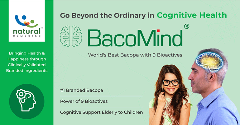News
Research: low GI does not benefit heart health, diabetes
18 Dec 2014New research suggests that heart-healthy eaters – those following a diet rich in fruits, vegetables and whole grains, and low in sweets – don’t need to worry about choosing low glycaemic index foods to lower the risk of diabetes and heart disease. Though the study was not designed to test the effects of low glycaemic […]

 New research suggests that heart-healthy eaters – those following a diet rich in fruits, vegetables and whole grains, and low in sweets – don’t need to worry about choosing low glycaemic index foods to lower the risk of diabetes and heart disease. Though the study was not designed to test the effects of low glycaemic index foods on weight control, its lead researchers looked at studies that did focus on weight and found no clear proof of a benefit.
New research suggests that heart-healthy eaters – those following a diet rich in fruits, vegetables and whole grains, and low in sweets – don’t need to worry about choosing low glycaemic index foods to lower the risk of diabetes and heart disease. Though the study was not designed to test the effects of low glycaemic index foods on weight control, its lead researchers looked at studies that did focus on weight and found no clear proof of a benefit.
The glycaemic index is a measure of how quickly foods containing carbohydrates, such as fruits, cereals and baked goods, raise glucose levels in the bloodstream. Conventional wisdom says that high glycaemic index foods like bananas and pasta are “bad” for heart health and may increase diabetes risk. But in a clinical trial reported in the Journal of the American Medical Association, researchers at the Johns Hopkins University School of Medicine and Harvard Medical School found little evidence to support these claims.
Study volunteers followed carefully planned diets high or low in carbohydrates and with high or low glycaemic index scores. Tests tracked the volunteers’ blood pressure, cholesterol levels and sensitivity to insulin at the beginning and end of each diet. The results showed little difference between high and low glycaemic index foods, said study co-director Lawrence J. Appel, a professor of medicine and director of the Welch Center for Prevention, Epidemiology and Clinical Research at Johns Hopkins Medicine.
“We were really surprised,” Appel said. “We did not detect any clear benefit of the low glycaemic index diets on the major risk factors for heart disease, and we found no evidence of benefit for diabetes prevention.”
The authors looked closely at other studies focusing on the use of low glycaemic index foods in weight control. “The evidence has been inconsistent that low glycaemic foods help people lose more weight or keep it off,” Appel said. “In looking at the causes of obesity and ways to combat it, a narrow focus on the glycaemic index seems to be unwarranted.”
Several popular diets recommend choosing carbohydrates that score low on the glycaemic index, but that’s not always easy, the researchers note. Only laboratory tests can determine a food’s glycaemic index, and the results can be unexpected: apples score low, but cantaloupe scores high.
Appel and study co-director Frank M. Sacks, a professor of medicine at Harvard Medical School, wanted to find out whether foods’ glycaemic index matters to heart health and diabetes prevention. They recruited 163 volunteers from Baltimore and Boston — all of whom were overweight and had above normal blood pressure — and randomly assigned them to follow one of four diets. Each diet contained the same number of calories, but those calories came from foods that were either high or low in carbohydrates, and also either high or low on the glycaemic index. The volunteers ate the day’s main meal at a research centre and took home their next two meals.
After five weeks on their assigned diets, the volunteers switched to a different one. Researchers tested the volunteers’ blood pressure; sensitivity to insulin; and levels of “good” high-density lipoprotein (HDL) cholesterol, “bad” low-density lipoprotein (LDL) cholesterol and triglycerides — fat molecules, or lipids, that play a role in heart health. The low glycaemic index diets did not lower blood pressure or LDL cholesterol, and they did not improve insulin resistance.
Women made up 51% of the study’s volunteers, and African-Americans made up 52%, so the results have broad relevance, said Appel, who offers simple advice for anyone overwhelmed by conflicting messages about diet and health.
“Get back to the basics that most people already know,” he said. “Don’t drink sugar-sweetened drinks. Try to eat fruits, vegetables and whole grains. Try to avoid sweets, salt, and foods high in saturated and trans fats. People who follow these principles will reap the benefits.”
Appel and Sacks led three earlier clinical trials that tested ways to reduce the risk of cardiovascular disease and diabetes, providing volunteers with carefully designed diets and measuring the effects on key health indicators. Their work established the health benefits of the DASH (Dietary Approaches to Stop Hypertension) and OmniHeart Mediterranean-style diets.
Related news

Has ‘clean’ had its day?
22 Dec 2025
Wielding clean-label positioning and fortification as marketing levers is a dangerous strategy, and brands would be better off explaining the hows and whys of the ingredients in their products, say experts.
Read more
Celebrating the winners of the Fi Europe Innovation Awards 2025
3 Dec 2025
Food industry stakeholders celebrated as the winners of the Fi Europe Innovation Awards were announced at a ceremony in Paris.
Read more
Alternative protein startups pivot to B2B ingredients amid funding shift
27 Nov 2025
Alt protein startups are pivoting from consumer meat analogues to high-value B2B ingredients, driven by stronger investor interest, better margins, and clearer commercial pathways.
Read more
Walmart Marketplace’s record growth prompts search for UK sellers
26 Sep 2025
Walmart’s third-party e-commerce platform, Marketplace, has witnessed extraordinary growth – but a need for more product diversity has prompted the retailer to recruit UK sellers.
Read more
The winners of Vitafoods Europe Startup Challenge 2025 revealed
29 May 2025
Four startups – Yomio Drops, PFx Biotech, Revobiom, and Favamole – took top prizes at this year’s Vitafoods Europe Startup Challenge awards.
Read more
East takes on West in the fight for future food flavours
30 Apr 2025
Asian and South American flavours are now key components on global menus, driven by a growing global appetite for culinary mashups.
Read more
Food companies urged to bring ‘joy’ and urgency to healthy food mission
14 Mar 2025
For too long, businesses have treated health and sustainability as separate agendas – but there is growing evidence to show diets that benefit human health can also enhance that of the planet, say experts.
Read more
Entries open for inaugural Vitafoods Europe Innovation Awards
29 Jan 2025
Entries are open for the inaugural Vitafoods Europe Innovation Awards, celebrating the ingredients, finished products, partnerships, and initiatives redefining the nutraceutical landscape.
Read more
Paris Olympics: Food and beverage brands champion health, fun, and sustainability
5 Aug 2024
Food and beverage brands are aligning with the Paris Olympics 2024 Food Vision, which emphasises sustainability, local sourcing, and plant-based diets.
Read more
Natural Remedies: Bringing health and happiness via validated branded ingredients
18 Apr 2024
Natural Remedies is an internationally renowned botanical healthcare company committed to advancing the field through rigorous research and the development of clinically validated Branded Ingredients. Guided by our foundational principle of ‘BEING USEF...
Read more